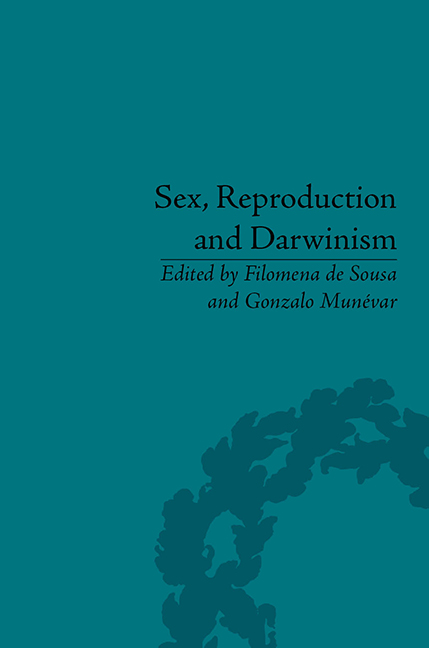Book contents
- Frontmatter
- CONTENTS
- Acknowledgements
- List of Contributors
- List of Figures and Tables
- Introduction
- Part I Reproduction, Mortality and Evolution
- 1 From Birth to Death: The Evolution of Life Histories in Guppies (Poecilia reticulata)
- 2 If we have Sex, do we have to Die?
- Part II Reproduction without Sex?
- Part III Sex without Reproduction?
- Part IV Sexual Selection and Morality
- Part V Sex, Reproduction and Evolutionary Psychology
- Part VI Eugenics from Natural to Social Selection
- Notes
- Index
2 - If we have Sex, do we have to Die?
from Part I - Reproduction, Mortality and Evolution
- Frontmatter
- CONTENTS
- Acknowledgements
- List of Contributors
- List of Figures and Tables
- Introduction
- Part I Reproduction, Mortality and Evolution
- 1 From Birth to Death: The Evolution of Life Histories in Guppies (Poecilia reticulata)
- 2 If we have Sex, do we have to Die?
- Part II Reproduction without Sex?
- Part III Sex without Reproduction?
- Part IV Sexual Selection and Morality
- Part V Sex, Reproduction and Evolutionary Psychology
- Part VI Eugenics from Natural to Social Selection
- Notes
- Index
Summary
Though you care about the fate of the Earth and the future of humanity, you may not feel that the perpetuation of the species in any way compensates for the annihilation of your own individual consciousness. And as for caring about your progeny, the fact that they will survive you makes it all the more difficult to bear the prospect of your life's end, on the assumption that you will never know their future and that they, for all your faults, may well miss you. In short, like Woody Allen, you aspire to immortality not by your works, or your progeny, or the daisies you will push up from below, but ‘by not dying’.
If those are your sentiments, your attitudes are likely to have been formed by a culture steeped in theistic assumptions. For if you were a Daoist, in the tradition of Lao Zi and Zhuang Zi, or even an atheist mystic in the mould of Leonard Angel, you might feel happy with the thought that Life will go on after your individual life has ceased. You might feel that the merging of your individual self in the totality of the universe renders trivial your preoccupation with individual existence. You would have no use for the elaborate intellectual edifices that attempt to make sense of individual survival.
The construction of stories about ways in which we might transcend our own death represents an impressive intellectual achievement.
- Type
- Chapter
- Information
- Sex, Reproduction and Darwinism , pp. 33 - 48Publisher: Pickering & ChattoFirst published in: 2014



